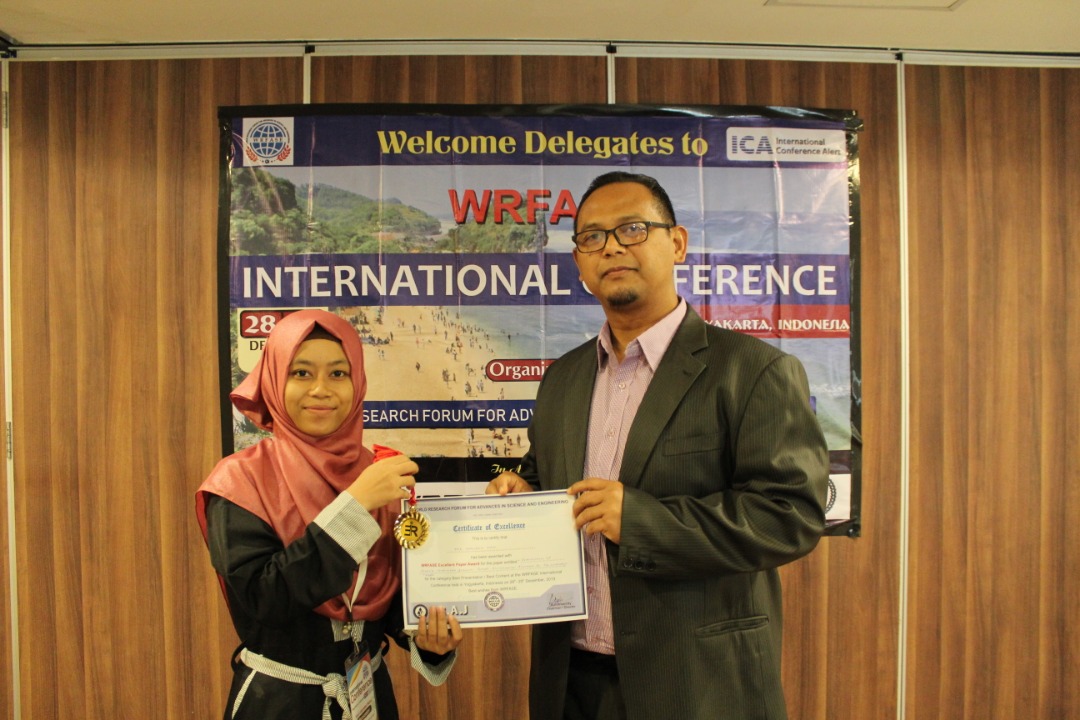Recent Updates
- Etiam imperdiet volutpat libero eu tristique. Aenean eget nulla euismod, rutrum felis in, consequat diam.
- Curabitur porttitor ante eget hendrerit adipiscing. Maecenas at magna accumsan, rhoncus neque id, fringilla dolor.
- Praesent ornare nisl lorem, ut condimentum lectus gravida ut. Ut velit nunc, vehicula volutpat laoreet vel, consequat eu mauris.
- Nunc ultrices tortor eu massa placerat posuere. Vivamus viverra sagittis nunc. Nunc et imperdiet magna. Mauris sed eros nulla.
- Morbi sodales tellus sit amet leo congue bibendum. Ut non mauris eu neque fermentum pharetra.
Winners of
"Excellent Paper Award"

Winners of "Excellent Paper Award"
- Name : NOOR JANNATUN NAIM
- Paper title : DETERMINANTS OF STUDENT’S CONSERVATION BEHAVIOR THROUGH ENVIRONMENTAL AWARENESS AS THE MEDIATING VARIABLE
- Affiliation : FACULTY OF ECONOMICS, UNIVERSITAS NEGERI SEMARANG
- Country : Indonesia
- Paper Abstract : Based on the initial observation, it showed that there were 41.51 % of students who have not behaved in conservation. The objective of the research is to examine the influence of independent variables on dependent variable, through mediating variables. The population of the study were all 8th semester of the Economic Education, Universitas Negeri Semarang. They were 372 students. Based on the population, they were 193 students for samples taken for proportional random sampling technique. The data were collected for distributing the questionnaires and analyzed for Structural Equation Model (SEM) with Smart PLS 3.0. The result of the research showed that there were the model had fulfilled the validity, reliability and the fit of model to be analyzed. Thus, consumptive lifestyle has a negative significant influence for -46.5% on conservation behavior, conservation knowledge has an positive but insignificant influence on conservation behavior for 10.3% and environmental awareness has a positive significant influence for 29.7% on conservation behavior. Furthermore, consumptive lifestyle and conservation knowledge have a negative and positive significant influence the environmental awareness for -31.7% and 38.7%. Furthermore, consumptive lifestyle and conservation knowledge which mediates environmental awareness are -9.4% and 11.55%. Whereas for institutional conservation policy variables have a positive insignificant influence on conservation behavior for 12.6% and their influence on environmental awareness for 14.4% and for 4.9% which is mediated for environmental awareness. The concluded are four rejected and six accepted hypothesis. Keyword: Consumptive Lifestyle, Conservation Institutional Policy, Conservation Knowledge, Environmental Awareness, Student’s Conservation Behavior
- Conference Details : WRFASE International Conference,29th Dec 2019,Yogyakarta,Indonesia





